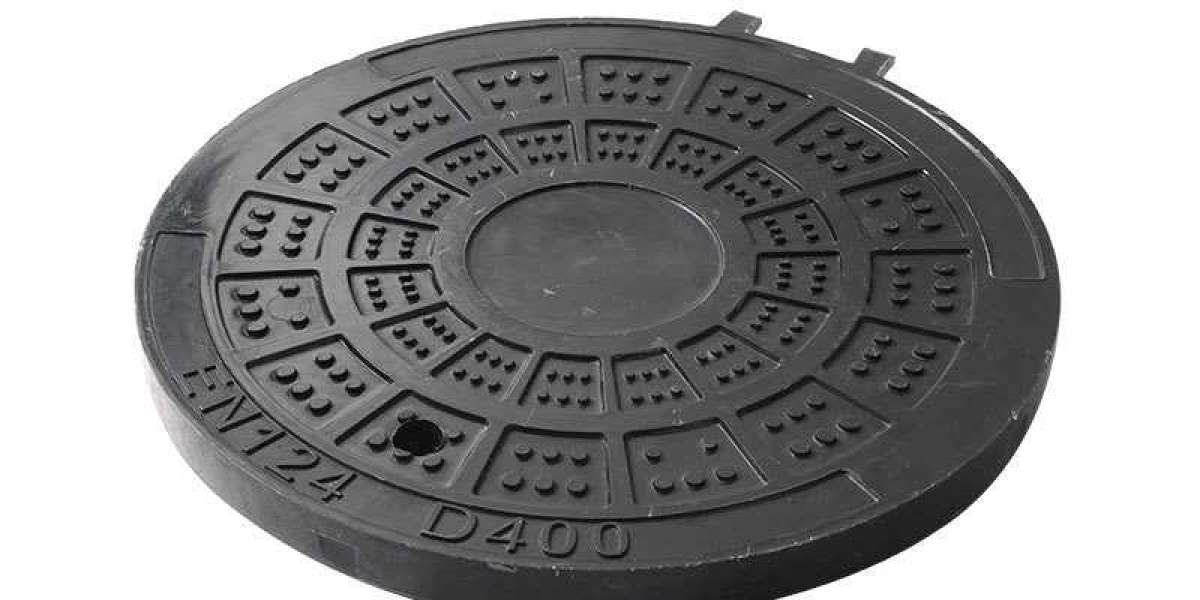In modern urban planning and infrastructure development, the materials used for manhole covers play a critical role in ensuring safety, durability, and ease of maintenance. The B125 Manhole Cover Mold offers a comprehensive solution for creating high-performance manhole covers designed to withstand heavy loads while maintaining functionality over time. This mold is used to produce manhole covers that meet a variety of specifications and load requirements, making it a versatile tool in the construction industry.
What is a B125 Manhole Cover Mold?
A B125 Manhole Cover Mold is a specialized mold used to produce manhole covers that meet the B125 load classification. This load rating indicates that the cover is capable of withstanding a maximum load of 12.5 tons, making it suitable for areas with moderate vehicular traffic, such as residential streets, parking lots, and pedestrian zones. The mold is used to create manhole covers from materials like Sheet Molding Compound (SMC) and Bulk Molding Compound (BMC), which offer significant advantages over traditional cast iron.
Key Features of B125 Manhole Cover Molds
1. High Load Capacity
The primary benefit of the B125 manhole cover is its ability to withstand moderate to heavy loads. Meeting the B125 classification means that these covers can handle up to 12.5 tons of pressure, making them suitable for a range of urban and industrial applications. The mold allows for customization of the cover's load capacity, ensuring that specific project requirements are met.
2. Durability and Long-Lasting Performance
Manhole covers are exposed to harsh environmental conditions, including extreme weather, chemicals, and physical wear. The B125 Manhole Cover Mold produces covers made from materials like SMC, known for their resistance to corrosion, impact, and UV degradation. Unlike traditional cast iron covers, SMC manhole covers do not rust or degrade over time, ensuring long-lasting performance even in tough environments.
3. Lightweight and Easy to Handle
One of the standout features of the B125 Manhole Cover Mold is the lightweight nature of the SMC material. These covers are significantly lighter than cast iron alternatives, making them easier to transport, install, and maintain. The reduction in weight not only lowers transportation costs but also makes manual handling safer, reducing the risk of injury during installation and maintenance.
4. Customizable Design
Customization is key when it comes to manhole covers, as different applications may require specific designs, load capacities, and markings. The B125 Manhole Cover Mold allows for flexibility in design, including different shapes (round, square, or rectangular), sizes, and load ratings. Whether you need a cover that can handle pedestrian foot traffic or one that needs to withstand the weight of delivery trucks, this mold can be adapted to meet the needs of various projects.
Manufacturing Process of B125 Manhole Covers
The manufacturing process of manhole covers using the B125 mold involves several important steps to ensure high-quality results:
Compression Molding: The B125 Manhole Cover Mold utilizes compression molding, a process in which raw composite material is heated and then compressed into the mold cavity. This ensures that the material conforms to the exact shape and size of the manhole cover.
Material Selection: The use of SMC and BMC materials is essential in creating manhole covers that are both durable and resistant to environmental factors. These materials are designed to endure extreme conditions, ensuring that the manhole covers remain intact and functional over time.
Quality Control: Stringent quality control measures are applied throughout the production process to ensure that each manhole cover meets the necessary standards for strength, durability, and load-bearing capacity. The use of advanced technology and precise mold design ensures the consistent performance of every cover produced.
Applications of B125 Manhole Covers
Manhole covers produced from the B125 Manhole Cover Mold are suitable for a wide range of applications in urban and industrial environments:
Urban Infrastructure: These manhole covers are ideal for use in residential areas, parks, and pedestrian walkways, where moderate vehicular traffic is common. Their ability to withstand the weight of cars, trucks, and heavy machinery makes them an excellent choice for streets and sidewalks.
Industrial Areas: B125 manhole covers can also be used in industrial zones, warehouses, and loading docks, where they can handle the stress of forklifts and other equipment without failure.
Residential Developments: Whether it's for private roads, parking spaces, or public access areas within residential neighborhoods, B125 manhole covers provide a reliable, durable solution for homeowners and developers.
Advantages of Using B125 Manhole Cover Molds
The use of B125 Manhole Cover Molds offers several benefits, including:
Cost Efficiency: The mold's ability to create manhole covers from composite materials like SMC and BMC means that production costs are lower compared to traditional cast iron. Additionally, the lightweight nature of the final product reduces transportation and handling costs.
Safety: With their reduced weight and ease of handling, the B125 manhole covers help improve the safety of workers during installation and maintenance. The use of corrosion-resistant materials also ensures that these covers remain safe and functional for many years.
Environmental Impact: SMC and BMC materials are more environmentally friendly than cast iron, as they do not require energy-intensive processes to produce. These materials are also recyclable, contributing to sustainability efforts in the manufacturing process.








